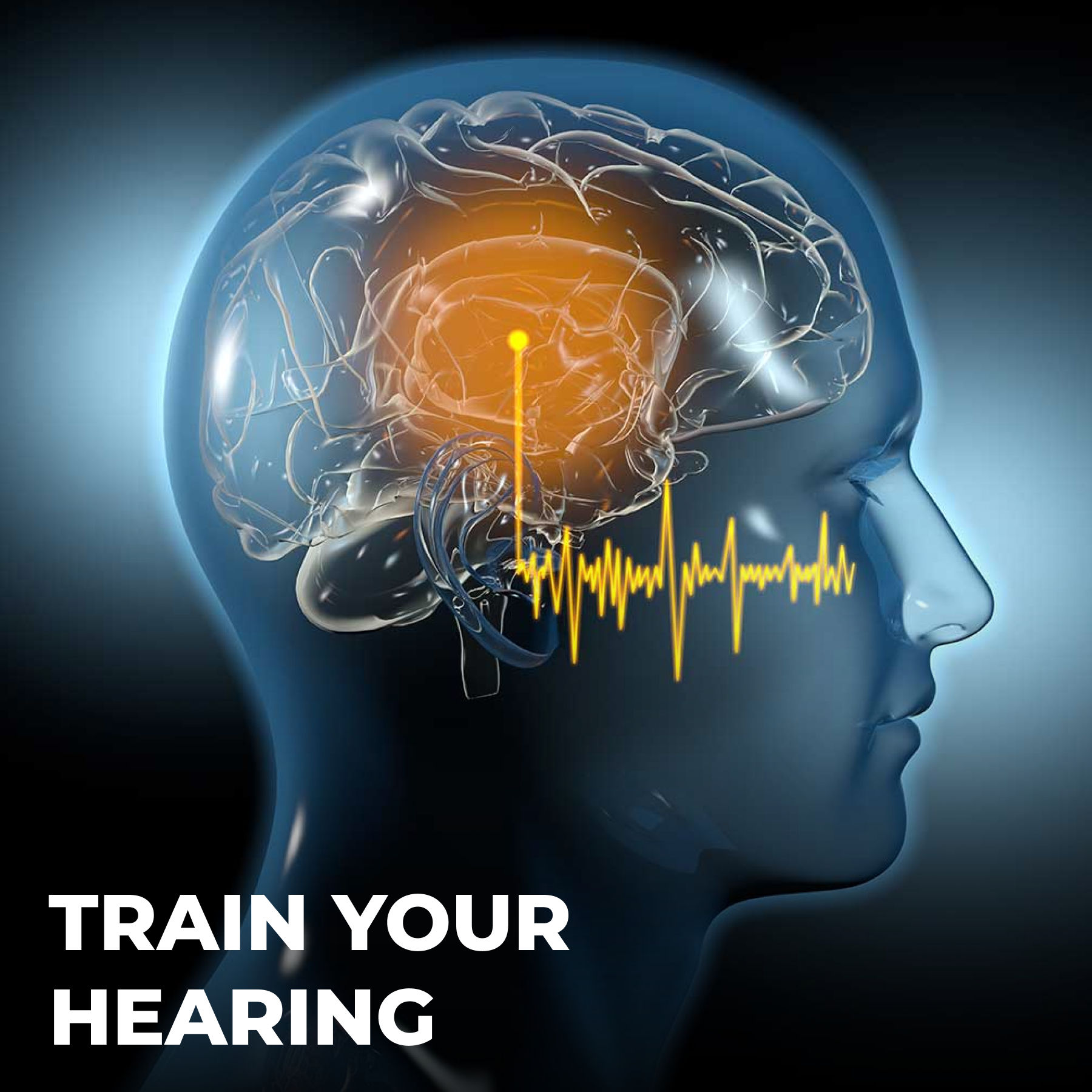
Ear training
Taking care of your hearing begins with training it. Taking care of your hearing should start much earlier than a person feels the first signs of deterioration. This should be obvious. Reduce exposure to loud sounds, protect your ears during noisy work, stop listening to loud music in your headphones... These and other recommendations can often be heard from both specialists and ordinary people who understand the need to take care of their hearing. However, there are other, less obvious, but no less effective ways to maintain good hearing. One of them is cognitive training. It will be useful for both people with normal hearing and those who already have certain disorders.
Keep your brain busy
It is no secret that with age, a gradual decline in human cognitive functions occurs, which entails a decrease in the ability to hear. Hearing aids for a hearing-impaired person play a colossal role: they allow him to communicate, work, and engage in hobbies. But most importantly, they activate the work of the area of the brain that is responsible for hearing, and do not allow nerve cells to lose the ability to transmit impulses and signals. Cognitive training, which includes, among other things, hearing training, is also designed to increase the efficiency of the brain.
As a result of such training, patients with hearing impairments are able to purposefully train the processing and understanding of strongly altered and subjective impressions when using hearing aids. In addition, training helps to maintain brain function until old age and prevent dementia, so it is also useful for people without hearing loss. Research has shown that such training improves memory, information processing speed and logical thinking, and slows down brain aging. Let us recall that the brain is naturally flexible, and therefore regular mental exercise is simply necessary to maintain tone and form new neural connections.
Better hearing = better thinking
Despite the different options, all cognitive training is based on similar principles:
- selection of an algorithm based on the level of complexity (depends on the upper limit of the patient's hearing and corresponds to his/her resource capabilities);
- correctly selected hearing aid for successful training (if we are talking about a hearing-impaired person);
- increased motivation;
- training regularily.
The undoubted and perhaps the main result of cognitive training is not only the successful completion of tasks during the lesson, but also the fact that the patient transfers the acquired skills into everyday life, which allows him to better understand speech and communicate more easily.
According to the results of the research conducted in Germany, it was scientifically proven that regular cognitive exercises have a positive effect on the patient's ability to hear and understand better. Thus, the participants of the experiment performed various tests for 60 minutes a day, five days a week for ten weeks: guessed riddles, solved problems, learned to recognize words and phonemes, answered questions about short stories they heard, etc.
Along with the improvement in the results of the training tasks, improvements in neuropsychological tests could also be observed. This allows us to conclude that the increase in performance in neuropsychological tests may be associated with improved hearing and understanding.
The patient’s motivation and desire are the key to success!
Hearing training is indispensable for people who are just starting to wear a hearing aid. During this period, a person learns to hear the world again, he needs to get used to the new sound, remember long-forgotten sounds and learn to distinguish them. Therefore, any motivation for a successful and quick adaptation period is welcome. Cognitive training will be an excellent tool in this matter.
The patient's consent to cognitive training implies his/her readiness to actively cooperate in all activities offered by the doctor. It is the patient's active conscious participation in the training and his/her desire to achieve results that play a key role. One of the possible problems, especially for the elderly, may be fear and uncertainty in using a computer and other modern gadgets. In this case, the doctor's task at a personal appointment is to explain to the patient and his/her relatives the importance of the training, dispel his/her doubts, and convince him/her of the need for the training. The more the patient is interested in the success of the training, the higher his/her result will be.
A good approach would be to combine the patient’s independent cognitive training using information technology and classical personal training with the doctor, during which the latter can evaluate the results, discuss the difficulties the patient is facing, adjust the tasks and tests, check the hearing aid settings and change them if necessary.
More effective together
One of the mandatory conditions for successful adaptation of the patient to the hearing aid is his involvement in social life. Experts recommend a gradual increase in the time of wearing the device and simple exercises that will help learn to hear the world around. For example, sitting on a bench in the park, try to understand the direction of the sound and its source, listen to various noises, concentrate and highlight some sounds against the background of others, etc. These are undoubtedly necessary and important skills, but without additional cognitive training based on information technology, their effect will be lower, researchers believe. After all, the main difference between cognitive training and everyday social activity is that their structure is clearly thought out, they are designed for a certain duration and frequency of classes, consistency and regularity of actions. Thus, a combination of all rehabilitation methods, including the use of cognitive training, will allow patients to achieve much greater results, improve hearing and speech understanding, facilitate communication, thereby significantly improving the quality of life. It is important to remember that cognitive training is an effective preventive tool for brain activity that will be useful to all people, regardless of whether they have hearing impairments or not.
The material is based on an article from theHörakustik, 3/2020

